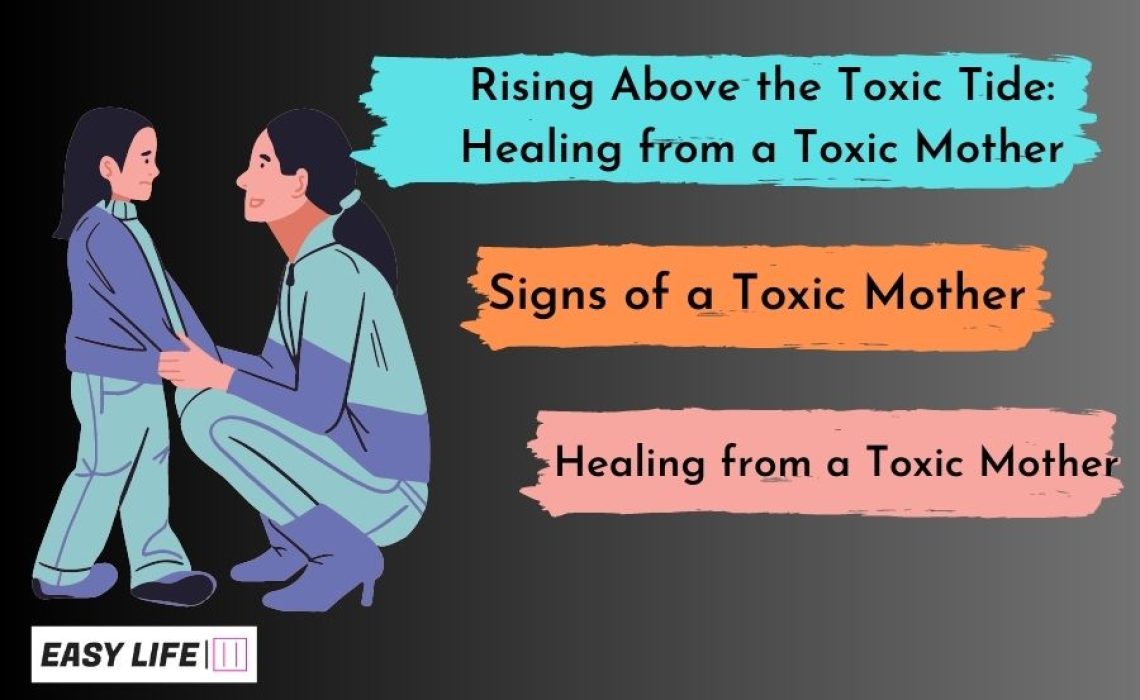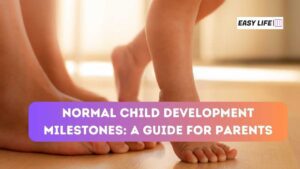Toxic Mother: Welcome to our exploration of a difficult yet vital topic – toxic motherhood. Society often paints an image of mothers as the epitome of love and sacrifice, and while many do fit this description, it’s crucial to acknowledge that not all maternal relationships are healthy or nurturing. Some, unfortunately, are characterized by consistent patterns of harmful behaviours which can have long-lasting effects on a child’s well-being.
In this blog, we will delve into the challenging subject of toxic motherhood. We aim to shed light on the signs of a toxic mother, delve into the unique struggles of a toxic mother-daughter relationship, explore the effects of such toxicity on a child, and provide useful insight on how to cope and heal from this experience.
Our goal is not to vilify or blame but to provide understanding and resources for those who may be grappling with this issue. We hope that by illuminating this topic, we can provide some solace, guidance, and ultimately, a path towards healing.
Table of Contents
Toggle1. Defining Toxicity in a Mother
Toxicity in a mother, like in any relationship, is characterized by repeated harmful behaviours that erode the mental and emotional well-being of the child. It’s crucial to understand that even the best parents have moments of frustration or lapse in judgment, but what differentiates a toxic mother is the persistence and intensity of these damaging behaviours.
A toxic mother may be consistently neglectful, overly critical, manipulative, or controlling. She may fail to provide her child with the basic emotional support, love, and encouragement needed for healthy development. Instead, she may impose unrealistic expectations, use guilt or fear as tools for control, or regularly dismiss the child’s feelings and experiences.
In some cases, a toxic mother may shift between extremes – being excessively involved and controlling at times, while being distant and neglectful at others. This unpredictability can create a volatile environment where the child constantly feels on edge, unable to predict or understand their mother’s behaviour.
It’s also important to note that toxicity can take many forms and is not always overt. Some mothers may use subtle manipulation, passive-aggressive comments, or emotional blackmail, which can be just as damaging but harder to recognize.
Understanding the nature of a toxic mother is the first step towards healing. In the next section, we will explore specific signs to help identify if you’re dealing with a toxic mother.
2. Signs of a Toxic Mother
Recognizing the signs of a toxic mother can be a challenging task, especially as societal norms often downplay or dismiss such issues. However, it is crucial for understanding and processing one’s experiences. Here are some common signs to look out for:
Constant Criticism:
- A toxic mother often finds fault in her child’s actions, decisions, and lifestyle. She may belittle, dismiss, or ridicule her child, leading to a constant feeling of never being ‘good enough’.
Manipulation
- This could involve guilt-tripping, emotional blackmail, or gaslighting. A toxic mother might use these tactics to control her child’s behaviour or decisions, often disregarding the child’s feelings or needs in the process.
Neglect:
- Emotional neglect happens when a mother consistently fails to respond to her child’s emotional needs, making the child feel ignored or invalidated.
Over-Control:
- A toxic mother might try to control every aspect of her child’s life, from their social interactions to their career choices, often under the guise of ‘knowing what’s best’.
Lack of Boundaries:
- She may intrude on her child’s privacy, dismiss their personal boundaries, or treat the child as an extension of herself rather than an individual with their own rights and needs.
Unpredictability:
- Inconsistency in mood, rules, or promises can create an unstable environment where the child feels constantly on edge, never knowing what to expect.
Conditional Love:
- A toxic mother’s love or approval often comes with strings attached. She might withdraw affection when the child doesn’t meet her demands or expectations, making the child feel as if they have to earn her love.
Inappropriate Role Reversal:
- In some cases, a toxic mother might depend on her child for emotional support, often sharing inappropriate information or relying on the child to fulfil her emotional needs. This is also known as parentification.
Remember, no parent is perfect, and everyone can display some of these behaviours occasionally. However, if these signs are consistent and cause significant distress, they could indicate a toxic mother. It’s also worth noting that some people may not realize they had a toxic mother until they reach adulthood and reflect on their childhood experiences. In the next section, we will delve deeper into the effects of growing up with such a mother.
3. The Unique Struggles in a Toxic Mother-Daughter Relationship
The relationship between a mother and daughter is often seen as one of the most profound connections. It is a bond that shapes a woman’s growth, her self-esteem, and her relationships with others. However, when this relationship is tainted with toxicity, it can lead to unique and complex struggles.
Identity Issues:
- With a toxic mother, a daughter might struggle to form a healthy, independent identity. The mother’s constant criticism or control can lead to self-doubt, self-criticism, and difficulties in making decisions independently.
Interpersonal Relationships:
- The mother-daughter bond is a daughter’s first introduction to relationships. Toxic patterns learned from this relationship can often carry over into friendships, romantic relationships, or even the way the daughter interacts with her own children in the future.
Self-Esteem and Body Image:
- Toxic mothers often project their own insecurities onto their daughters, leading to low self-esteem and body image issues. This can manifest in different forms, such as eating disorders or excessive concern over appearance.
Emotional Neglect:
- Daughters of toxic mothers often experience emotional neglect, which can lead to difficulty in understanding and managing their own emotions. This can result in feelings of emptiness, loneliness, and struggles with mental health issues like depression and anxiety.
Fear of Rejection and Abandonment:
- Due to the conditional love and approval from a toxic mother, daughters may develop a deep-rooted fear of rejection or abandonment, causing them to form unhealthy attachments or stay in toxic situations out of fear of being alone.
Guilt and Obligation:
- Many daughters feel a sense of guilt or obligation towards their toxic mothers, feeling responsible for their mother’s happiness. This can keep them stuck in the toxic cycle and make it difficult to set boundaries or seek help.
These struggles are deeply impactful, shaping a woman’s view of herself, her world, and her interactions with others. However, understanding these effects can act as a powerful catalyst towards healing and breaking the cycle of toxicity. In the next section, we’ll delve further into the overall effects of a toxic mother on a child’s development.
4. The Effects of a Toxic Mother on a Child
A toxic mother can have both immediate and long-term effects on a child’s development. This impact can stretch far beyond childhood, influencing a person’s adult life in many ways.
Emotional and Mental Health:
- Children of toxic mothers often struggle with various mental health issues, including depression, anxiety, post-traumatic stress disorder (PTSD), and borderline personality disorder. They may also have difficulties managing and expressing their emotions healthily.
Self-Esteem and Self-Worth:
- Constant criticism, neglect, or conditional love from a toxic mother can severely damage a child’s self-esteem. They may grow up feeling inadequate or unworthy, carrying these feelings into their adult life.
Relationships:
- Children of toxic mothers may struggle with forming and maintaining healthy relationships. They might replicate the toxic behaviours they experienced, or alternatively, they may find themselves attracted to partners who exhibit similar toxic traits.
Academic and Professional Success:
- The stress and anxiety caused by a toxic home environment can negatively impact a child’s academic performance and later, their professional success. They might struggle with concentration, motivation, or maintaining consistent performance.
Physical Health:
- Emerging research suggests a link between adverse childhood experiences, including living with a toxic parent, and long-term physical health issues. These can range from cardiovascular diseases to immune disorders.
Trust and Security:
- Growing up with a toxic mother can lead to issues with trust and feelings of insecurity. These children often feel the world is an unsafe place, and they may have difficulty trusting others or themselves.
Coping Mechanisms:
- Children of toxic mothers may develop unhealthy coping mechanisms, such as substance abuse, self-harm, or other risky behaviours, to deal with their emotional pain.
Understanding these effects is essential for anyone who has experienced a toxic mother. It helps to make sense of the struggles you may be facing and underlines the importance of seeking help. Remember, it’s never too late to start the healing process. In the next section, we’ll discuss ways to cope with a toxic mother.
5. Coping with a Toxic Mother
Coping with a toxic mother can be an overwhelming task, but with the right strategies and support, it is possible to navigate this difficult situation. Here are some practical steps to consider:
Set Boundaries:
- Establishing clear and firm boundaries is crucial. This could involve limiting contact, deciding on topics you’re unwilling to discuss, or defining acceptable behaviour during interactions.
Seek Professional Help:
- A therapist, particularly one experienced in family toxicity and trauma, can provide valuable tools to cope with your situation. Therapy can help you understand your experiences, develop healthy coping mechanisms, and guide you through the process of healing.
Practice Self-Care:
- Remember to prioritize your own well-being. This includes physical health—eating well, exercising, getting enough sleep—as well as mental health—engaging in activities you enjoy, practising mindfulness or meditation, and taking time to relax and decompress.
Build a Support Network:
- Connect with supportive friends, family members, or support groups who understand your situation. Sharing your experiences with others who can empathize can be incredibly validating and comforting.
Educate Yourself:
- Learn about the characteristics of toxic parents and the effects they can have. Understanding that your experiences are part of a larger pattern can help you detach from the idea that you are to blame.
Consider Limited Contact or No Contact:
- In extreme cases, it may be best to limit contact or entirely sever ties with your toxic mother. This is a significant decision that should be carefully considered, ideally with the guidance of a mental health professional.
Remember, coping with a toxic mother often involves a process of trial and error. What works for one person might not work for another. It’s important to be patient with yourself and celebrate small victories along the way. In the following section, we’ll look at the steps towards healing from a toxic mother.
6. Healing from a Toxic Mother
Healing from a toxic mother is a deeply personal journey and one that can be full of challenges. However, with the right tools and support, it is entirely possible to heal and lead a fulfilling life. Here are some key steps to consider:
Acknowledgement:
- The first step towards healing is acknowledging that you had a toxic mother. This might be a painful realization, but it’s essential in understanding your experiences and emotions.
Seek Professional Help:
- A mental health professional can provide a safe space to explore your feelings, understand the impact of your experiences, and guide you through your healing journey. They can also help you develop healthier coping mechanisms and strategies for setting boundaries.
Practice Self-Compassion:
- It’s important to be kind to yourself during this process. Acknowledge that it’s okay to feel hurt, angry, or confused. Recognize that healing takes time, and it’s perfectly alright to have good days and bad days.
Grieve:
- It’s normal to grieve the mother you wish you had. This can be a significant part of the healing process. It allows you to acknowledge your loss and make peace with it.
Build Healthy Relationships:
- Seek out positive, supportive relationships that provide the emotional support and mutual respect that you may have missed in your relationship with your mother.
Empower Yourself:
- Use your experiences as a source of strength and resilience. Many people who have survived toxic parents become incredibly strong, empathetic, and resilient. Recognize these qualities in yourself.
Break the Cycle:
- If you choose to have children, use your experiences to inform the kind of parent you want to be. It’s possible to break the cycle of toxicity and provide a healthier, more nurturing environment for your own children.
Remember, healing doesn’t mean forgetting about the past or excusing your mother’s behaviour. It means coming to terms with your experiences and working towards a healthier, happier future. In the next section, we’ll summarize the key points of our discussion and provide some final thoughts.
Conclusion
Understanding and dealing with a toxic mother can be a challenging and emotional journey. However, through this exploration, we’ve aimed to provide a comprehensive view of the topic, shedding light on the signs of a toxic mother, the struggles in a toxic mother-daughter relationship, the effects of such toxicity on a child, and ways to cope and heal.
We’ve highlighted the importance of recognizing the signs of a toxic mother, a crucial first step in addressing the issue. We’ve also delved into the unique challenges that such a relationship can present, especially in the context of a mother-daughter bond.
We’ve examined the profound effects a toxic mother can have on a child’s emotional, psychological, and physical well-being. This understanding underscores the need for those affected to seek help and engage in self-care.
Moreover, we’ve discussed practical strategies for coping with a toxic mother, including setting boundaries, seeking professional help, and building a supportive network. In extreme cases, limiting or cutting off contact might be the best course of action.
Finally, we’ve explored the process of healing, emphasizing that it’s a personal journey that requires acknowledgement, self-compassion, professional support, and the development of healthy relationships.
While the topic of toxic motherhood can be painful, it’s important to remember that you’re not alone in your experiences, and help is available. With time, patience, and the right resources, it’s entirely possible to heal and move forward to a healthier and happier life.
Foster Parent Requirements: A Comprehensive Guide
Resources
If you are dealing with a toxic mother or know someone who is, there are numerous resources available that can offer support, understanding, and guidance. Here are a few to consider:
-
Books:
- “Toxic Parents: Overcoming Their Hurtful Legacy and Reclaiming Your Life” by Dr Susan Forward
- “Will I Ever Be Good Enough? Healing the Daughters of Narcissistic Mothers” by Dr Karyl McBride
- “Adult Children of Emotionally Immature Parents: How to Heal from Distant, Rejecting, or Self-Involved Parents” by Lindsay C. Gibson
- Online Support Groups and Forums: Websites such as Reddit and Facebook have numerous groups where individuals share their experiences and support each other. Examples include r/raisedbynarcissists on Reddit and ‘Daughters of Narcissistic Mothers’ on Facebook.
- Hotlines and Counseling Services: In crisis situations or when immediate help is needed, hotlines like the National Domestic Violence Hotline (1-800-799-SAFE) can be lifesaving. For ongoing support, finding a local counsellor or therapist experienced in dealing with family toxicity can be highly beneficial.
- Mental Health Apps: Apps like Talkspace or BetterHelp connect users with licensed therapists for virtual counselling sessions, providing an accessible and flexible option for mental health support.
- Self-Care Apps and Websites: Resources like Headspace (for meditation), Moodpath (for tracking emotional health), and Calm (for stress reduction) can assist in managing stress and practising self-care.
Remember, it’s crucial to seek professional help if you’re dealing with a toxic mother. While books and online resources can provide valuable insight, they are not a replacement for professional assistance. Your mental health is important, and you deserve to be supported on your journey towards healing.










2 thoughts on “Rising Above the Toxic Tide: Healing from a Toxic Mother”
Pingback: Decoding Strict Parenting: An In-depth Look at the Signs, Effects
Pingback: Navigating the Storm: Dealing with a Toxic Mother-in-Law -